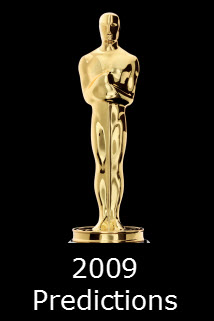The Rewrite (2015)


Content by Tony Macklin. Originally published on February 16, 2015 @ tonymacklin.net.
Hugh Grant has the best facial expression of bemusement in films. Probably ever.
Even in negligible comedies, such as The Rewrite, that expression is gold. What makes it special is the intelligence behind it. Despite being baffled, Grant's characters usually retain their quick wit.
In About a Boy (2002) - one of my personal favorites - the material was equal to the actor. Usually it's not. Like so many actors, Grant seldom finds material up to his potential. At least, The Rewrite offers him some opportunities.
Grant isn't much of a physical comic actor, although he can make awkwardness graceful. But like masters Chaplin and Keaton, Grant has their gift of heart. He stays on the side of truthful sentiment and rarely crosses into the excesses of sentimentality.
In The Rewrite, Grant returns to portraying the one-hit wonder that he captured so effectively in About a Boy, in which his character Will Freeman wrote a single Christmas hit record and then floundered.
In The Rewrite, Grant portrays Keith Michaels, a writer who won the Oscar for Original Screenplay 15 years ago. Since then his career has flat-lined. He's making the rounds trying to pitch an idea involving Jack Nicholson, but it's always DOA.
In desperate need of money, Keith asks his agent to get any paying job for him. She succeeds - soft of. Although he insists writing can't be taught, Keith takes a job teaching a course in screenwriting at Binghamton University in New York. When he arrives there, he calls Binghamton "the absolute end of civilization."
Of course, he gets drunk and beds a coed (Bella Heathcote) on his first night on campus.
Fortunately, The Rewrite avoids many of the other conventional - cliched - expectations.
What Grant, at his best, does is to lift actors around him. In The Rewrite, he even helps make Chris Elliott likable. Elliott, as the neighbor and teacher of Shakespeare, is more human than his usual shtick of silliness.
Marisa Tomei is winsome as a single mother raising her two daughters. She wants to improve herself. The Rewrite makes an apt decision at keeping her children and Keith's son at a distance.
J.K. Simmons is capable as always, as the department head. Simmons takes time off from Whiplash to a different kind of whipping with a wife and four daughters.
Allison Janney, as a Jane Austen scholar, becomes the foe of Keith when he debunks female empowerment and calls Jane Austen "trivial." Janney's Mary Weldon is a role with very limited dimension, but her significant action at the end is credible.
Marc Lawrence, who has written and directed four films with Grant is no Weitz brothers, who ironically were one-hit Grant wonders with About a Boy.
Lawrence's screenplay is full of movie allusions - to actors Nicholson, Matt Damon, Ryans Gosling and Reynolds, Jonah Hill, and Channing Tatem. There are also allusions to movies - Clueless (1995), The Hurt Locker (2008), Star Wars (1977), and Dirty Dancing (1987). The allusion to Marty (1955) is a nice surprise, but it seems dated. It's probably personal for Lawrence.
There are smart allusions to Rod Serling and The Twilight Zone.
Basically Lawrence allows Hugh Grant to be Hugh Grant. Grant shows his range when bemusement is wiped off his face by a serious, solemn stare as he watches his Oscar acceptance speech on UTube.
But Grant's bemusement returns. In The Rewrite, it's very welcome.
We shouldn't take it for Granted.














